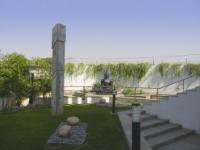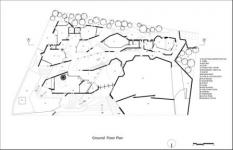The Centre for Neurological Disorders and Complimentary Medicine (CNDCM), located in Pune, India, is focused on the enhancement of life styles of specially challenged people. Most of those approaching the Centre are children, brought by their parents who have all but lost hope.
Dr. Oswal, the founder of the Centre, began his research and medical practice in a small hut in a dismal area of the city in 1968. Applying indigenous forms of medicine he soon began to see results where allopathic medicine had failed. As his fame spread, patients started flowing in from distant lands and from all walks of life. Most do not pay any fees! Following a “pay according to capability,” model, Dr. Oswal was able to keep aside (in trust) enough funds to buy a half acre of land on the edge of the city and to approach an architect to pursue his dream.
Culturally, the mentally challenged in India are swept under the carpet and locked in back rooms. Institutionally, India still follows archaic laws and supports facilities wherein such unwanted patients are virtually incarcerated under out-dated laws in Dickensonian institutions where bared windows and chains are commonly found.
In the education of his architect Dr. Oswal “de-schooled architecture,” leading his designer to explore the minds and lives of mentally challenged children.
The resulting campus employs village like lanes to channel breezes; employs solar water heaters; uses mist irrigation to cool spaces; brings in natural light to obviate artificial illumination; opens every corner toward pleasant views and vistas; and uses a judicial mix of interior and exterior spaces linked by verandahs, small arcades and porches.
This complex functional program employs sustainable building practices to bring human dignity and loving care back within the cultural continuum. It is the beginning of an end to a long colonial nightmare, and is a step into a better future.
2002
2004
Site Area: 2,000 sq.m
Total Combined Floor Area: 790 sq.m
Total Initial Budget: Rs. 11,000,000 (US $314,285)





